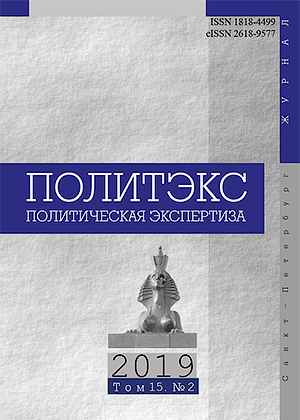Studying the electoral governance: a research agenda
DOI:
https://doi.org/10.21638/11701/spbu23.2019.207Abstract
The article discusses the features of the formation and current state of the research agenda in the study of public policy and management in the field of the electoral process. The differences in the choice of research topics between the expert-analytical and academic communities are revealed. The theoretical study of the state electoral policy begins only at the end of the 20th century; in determining the themes and even the conceptual guidelines in this subject area, the priority belongs to the expert-analytical community. Leading international think tanks have a significant influence on the formation of a research agenda in the study of electoral governance. The effectiveness of the existing division of labor between the expert and academic communities in the study of electoral governance can be revised. The dominance of rational choice theory and other subjectivist approaches in theoretical studies restricts the research agenda. The exceeding specialization and fragmentation of this subject area cause a lack of coordination in defining and structuring the problem-thematic field. Large institutions and objects of electoral governance are studied only within the framework of expert-analytical works and do not become the subject of the necessary theoretical studies. Methodological possibilities of new institutionalism are practically not used in setting the directions and questions of research in this field. In Russian science, in defining research topics in the consideration of state electoral policy, the predominant attribution of this field of knowledge to jurisprudence and the weak degree of inclusion of domestic authors in the global scientific discourse are of the greatest importance.
Keywords:
electoral governance, electoral policy, elections, electoral management, think tanks, research agenda
Downloads
References
References
Downloads
Published
How to Cite
Issue
Section
License
Articles of "Political Expertise: POLITEX" are open access distributed under the terms of the License Agreement with Saint Petersburg State University, which permits to the authors unrestricted distribution and self-archiving free of charge.




